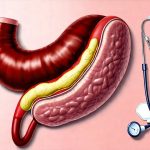Gastroesophageal reflux disease (GERD) and its associated symptoms – heartburn, regurgitation, difficulty swallowing – are often approached as purely physiological problems. We focus on diet, medication, and lifestyle adjustments related to the digestive system. However, increasingly, research demonstrates a powerful bidirectional relationship between our emotional state and the experience of reflux. It’s not simply that stress causes reflux; it’s far more complex than that. Emotional wellbeing profoundly impacts how we perceive symptoms, how intensely we feel them, and even the underlying physiological mechanisms contributing to their occurrence. Ignoring this crucial interplay can lead to ineffective treatment strategies and a diminished quality of life for those struggling with these conditions.
This intricate connection stems from the close anatomical and neurological links between the gut and the brain – often referred to as the “gut-brain axis.” The vagus nerve, a major communication pathway, directly connects these two systems. Emotions trigger physiological changes throughout the body, influencing everything from heart rate and breathing to digestive function. When we experience chronic stress, anxiety, or depression, these emotional states can significantly alter gut motility, esophageal sensitivity, and even acid production, all of which contribute to reflux symptoms. Conversely, the discomfort and disruption caused by reflux itself can negatively impact mood and mental wellbeing, creating a vicious cycle. This article will explore how emotional health interacts with reflux symptoms, providing insights into this often-overlooked aspect of digestive health.
The Emotional Landscape of Reflux: Stress, Anxiety & Depression
The link between stress and reflux is perhaps the most well-recognized. When we’re under stress, our bodies activate the sympathetic nervous system – the “fight or flight” response. This activation leads to a cascade of physiological changes designed to prepare us for action. However, these changes can directly exacerbate reflux symptoms in several ways: – Increased cortisol levels, which can heighten esophageal sensitivity and promote acid production. – Disrupted gut motility, leading to delayed gastric emptying and increased pressure on the lower esophageal sphincter (LES). – Altered perception of pain, making even mild discomfort feel more intense and bothersome. Chronic stress doesn’t just cause acute flare-ups; it fundamentally changes how our bodies experience and react to reflux over time.
Anxiety similarly impacts reflux through similar mechanisms as stress. The constant worry and hypervigilance characteristic of anxiety can keep the sympathetic nervous system activated, leading to a perpetual state of heightened physiological arousal. This can manifest as increased heart rate, rapid breathing, and muscle tension – all contributing factors to digestive upset. Individuals with generalized anxiety disorder may be particularly prone to experiencing reflux symptoms due to their chronic state of worry. It’s crucial to recognize that this isn’t about “imagining” the symptoms; it’s about a real physiological response driven by emotional distress.
Depression, while often perceived as separate from physical health, also has a strong connection to reflux. Depression can lead to changes in appetite, sleep patterns, and activity levels – all of which impact digestive function. Furthermore, depression is associated with decreased serotonin levels, a neurotransmitter that plays a crucial role in gut motility and pain perception. Lowered serotonin can slow down digestion, increase visceral hypersensitivity (an exaggerated sensitivity to sensations in the gut), and worsen reflux symptoms. Ignoring mental health when addressing chronic reflux is akin to treating only half of the problem. Considering how to [build trust with your body again] can be a powerful step forward.
The Vicious Cycle: How Reflux Impacts Emotional Wellbeing
Reflux isn’t merely a physical ailment; it can significantly impact emotional wellbeing, creating a self-perpetuating cycle. Chronic discomfort and disruption from symptoms like heartburn and regurgitation can lead to feelings of frustration, helplessness, and even anxiety about eating or social situations. Imagine constantly worrying about whether your next meal will trigger a flare-up – this constant anticipation is emotionally draining.
This emotional burden can then worsen the physical symptoms themselves. As previously discussed, stress and anxiety exacerbate reflux, so the more anxious someone becomes about their condition, the worse their symptoms may become. The fear of experiencing debilitating symptoms can lead to social withdrawal, reduced quality of life, and even depression. This is especially true for individuals who experience severe or atypical reflux symptoms that are difficult to manage.
Breaking this cycle requires a holistic approach – addressing both the physical and emotional components of reflux. Strategies like stress management techniques (mindfulness, meditation, yoga), therapy, and support groups can be invaluable in helping individuals cope with the emotional toll of reflux and reduce its impact on their overall wellbeing. It’s vital to remember that seeking help for your mental health is not a sign of weakness; it’s a proactive step towards improving your quality of life. Learning how to [eat peacefully with a reactive body] can be particularly helpful during this process.
The Role of Visceral Hypersensitivity & Pain Perception
Visceral hypersensitivity, or an increased sensitivity to sensations in the gut, plays a significant role in how we experience reflux symptoms. This isn’t about having “too much” acid; it’s about our nervous system interpreting normal digestive processes as painful. Emotional states profoundly influence visceral hypersensitivity. Stress and anxiety can lower the threshold for pain perception, meaning that even mild stomach discomfort is perceived as more intense and distressing.
The brain plays a key role in modulating pain signals from the gut. When we’re stressed or anxious, our brains become hyperfocused on potential threats, including internal bodily sensations. This heightened focus amplifies pain signals and makes us more aware of – and bothered by – even minor discomfort. Chronic stress can actually alter the structure and function of brain regions involved in pain processing, leading to a sustained increase in visceral hypersensitivity.
Addressing this requires understanding that the experience of reflux is subjective and influenced by emotional factors. Techniques like cognitive behavioral therapy (CBT) can help individuals reframe their perception of symptoms and reduce anxiety about experiencing them. Mindfulness-based practices can also help cultivate awareness of bodily sensations without judgment, reducing reactivity to discomfort. Learning to manage visceral hypersensitivity isn’t about eliminating symptoms entirely; it’s about changing how we relate to them. If you are struggling with unexplained symptoms, consider learning how to [coexist with symptoms that defy diagnosis].
Mind-Body Techniques for Reflux Management
Given the strong connection between emotional health and reflux, incorporating mind-body techniques into a treatment plan can be highly beneficial. These techniques aim to reduce stress, anxiety, and promote relaxation, ultimately mitigating the impact of emotional factors on digestive function. One effective technique is diaphragmatic breathing – slow, deep breaths that engage the diaphragm muscle. This type of breathing activates the parasympathetic nervous system (the “rest and digest” response), counteracting the effects of the sympathetic nervous system.
Mindfulness meditation involves focusing on present-moment awareness without judgment. Regularly practicing mindfulness can help individuals become more attuned to their bodily sensations, including reflux symptoms, and develop a greater sense of acceptance. This can reduce anxiety about experiencing symptoms and prevent them from spiraling into overwhelming discomfort. Yoga combines physical postures with breathing exercises and mindfulness, promoting both physical and emotional wellbeing. Specific yoga poses can also gently massage the digestive system, aiding in digestion and reducing bloating.
Progressive muscle relaxation (PMR) involves systematically tensing and relaxing different muscle groups throughout the body. This technique helps reduce overall muscle tension and promotes a sense of calm. These mind-body techniques aren’t quick fixes; they require consistent practice to be effective. However, when integrated into a comprehensive treatment plan, they can significantly improve both physical symptoms and emotional wellbeing for individuals struggling with reflux. [How to optimize digestion with sleep hygiene] is also an important component of overall wellness. It’s equally important to consider [how to balance gut healing with social life] so you don’t feel isolated in your journey. For families, learning [how to cook gut friendly meals with kids] can be a fun and supportive experience. Finally, remember that [how to practice food freedom with intolerances] can empower you to reclaim control over your diet and wellbeing.


















